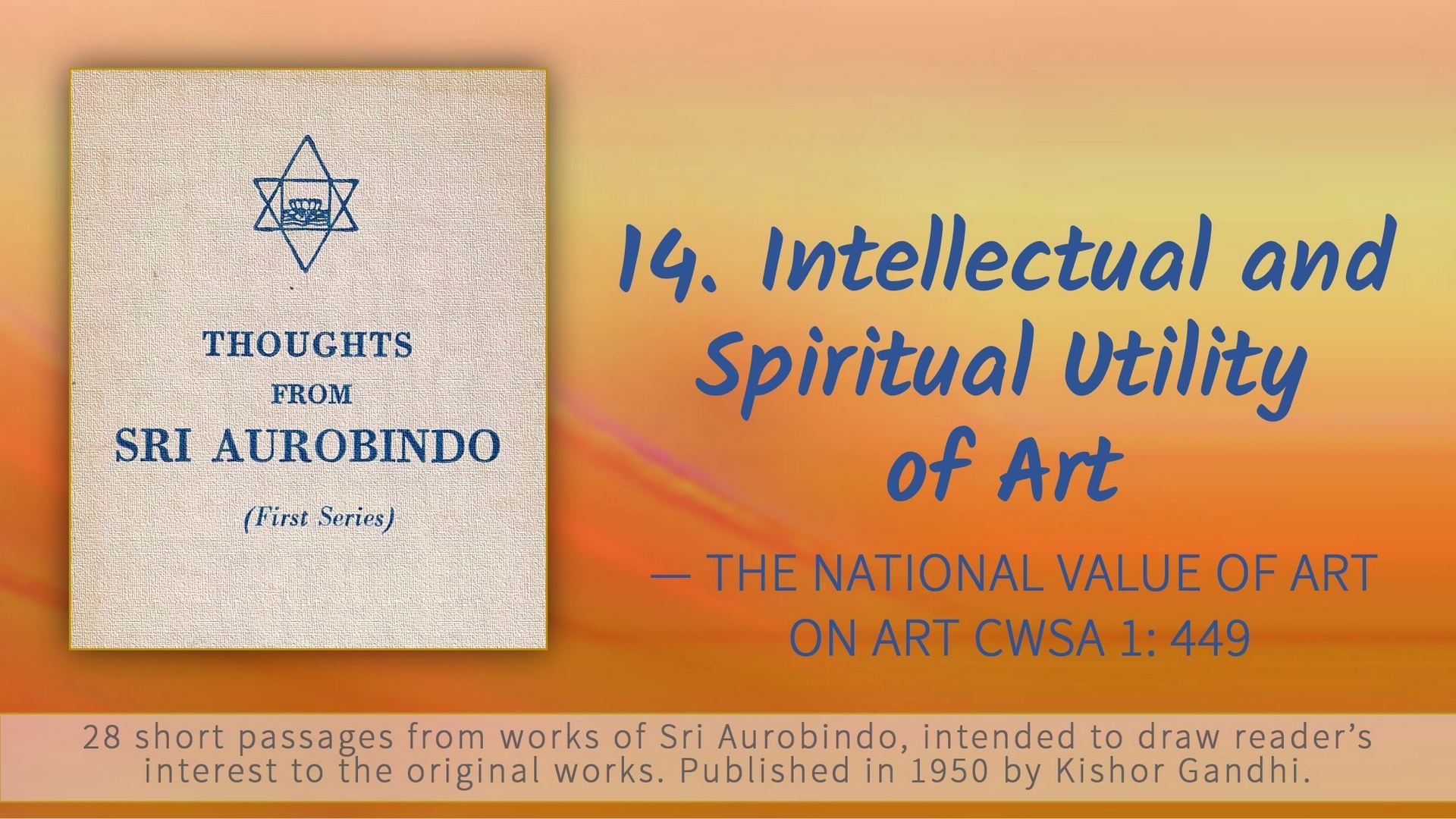
Art is subtle and delicate, and it makes the mind also in its movements subtle and delicate. It is suggestive, and the intellect habituated to the appreciation of art is quick to catch suggestions, mastering not only, as the scientific mind does, that which is positive and on the surface, but that which leads to ever fresh widening and subtilising of knowledge and opens a door into the deeper secrets of inner nature where the positive instruments of science cannot take the depth or measure. This supreme intellectual value of Art has never been sufficiently recognised. Men have made language, poetry, history, philosophy agents for the training of this side of intellectuality, necessary parts of a liberal education, but the immense educative force of music, painting and sculpture has not been duly recognised. They have been thought to be by-paths of the human mind, beautiful and interesting, but not necessary, therefore intended for the few. Yet the universal impulse to enjoy the beauty and attractiveness of sound, to look at and live among pictures, colours, forms ought to have warned mankind of the superficiality and ignorance of such a view of these eternal and important occupations of human mind. The impulse, denied proper training and self-purification, has spent itself on the trivial, gaudy, sensuous, cheap or vulgar instead of helping man upward by its powerful aid in the evocation of what is best and highest in intellect as well as in character, emotion and the aesthetic enjoyment and regulation of life and manners. It is difficult to appreciate the waste and detriment involved in the low and debased level of enjoyment to which the artistic impulses are condemned in the majority of mankind.
But beyond and above this intellectual utility of Art, there is a higher use, the noblest of all, its service to the growth of spirituality in the race. European critics have dwelt on the close connection of the highest developments of art with religion, and it is undoubtedly true that in Greece, in Italy, in India, the greatest efflorescence of a national Art has been associated with the employment of the artistic genius to illustrate or adorn the thoughts and fancies or the temples and instruments of the national religion. This was not because Art is necessarily associated with the outward forms of religion, but because it was in the religion that men’s spiritual aspirations centred themselves. Spirituality is a wider thing than formal religion and it is in the service of spirituality that Art reaches its highest self-expression. Spirituality is a single word expressive of three lines of human aspiration towards divine knowledge, divine love and joy, divine strength, and that will be the highest and most perfect Art which, while satisfying the physical requirements of the aesthetic sense, the laws of formal beauty, the emotional demand of humanity, the portrayal of life and outward reality, as the best European Art satisfies these requirements, reaches beyond them and expresses inner spiritual truth, the deeper not obvious reality of things, the joy of God in the world and its beauty and desirableness and the manifestation of divine force and energy in phenomenal creation. This is what Indian Art alone attempted thoroughly and in the effort it often dispensed, either deliberately or from impatience, with the lower, yet not negligible perfections which the more material European demanded. Therefore Art has flowed in two separate streams in Europe and Asia, so diverse that it is only now that the European aesthetic sense has so far trained itself as to begin to appreciate the artistic conventions, aims and traditions of Asia. Asia’s future development will unite these two streams in one deep and grandiose flood of artistic self-expression perfecting the aesthetic evolution of humanity.
— The National Value of Art
On Art CWSA 1: 449



About Savitri | B1C3-10 The New Sense (pp.29-31)